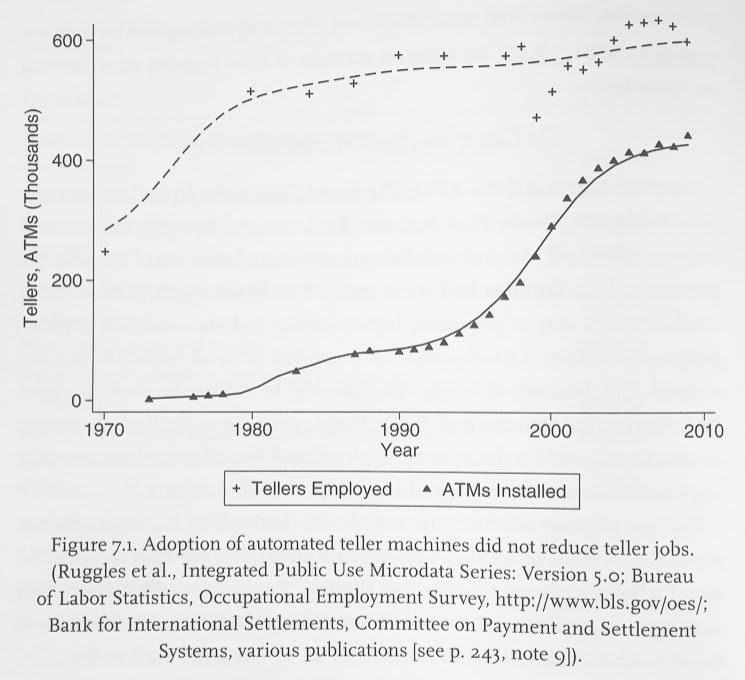Slopworld 2035: The dangers of mediocre AI
post by titotal (lombertini) · 2025-04-14T13:14:08.390Z · LW · GW · 6 commentsThis is a link post for https://titotal.substack.com/p/slopworld-2035-the-dangers-of-mediocre
Contents
6 comments
6 comments
Comments sorted by top scores.
comment by Yair Halberstadt (yair-halberstadt) · 2025-04-14T17:00:08.876Z · LW(p) · GW(p)
The particular example given (architecture) doesn't really make sense IMO:
If you're building something and want to save money on architecture, the current solution is to take a boilerplate design, tweak it to the current plot and local building code, and build it. Either AI can do that tweaking well, in which case great, or it can't in which case the architectural costs are fairly low compared to the total cost of the building that it really makes no sense to cut corners there.
If you're doing something bespoke, you'll want something that works, and if the architecture firm you use is cheaper than other bespoke firms, but the final product is subpar, you'll sue. Or at the very least not use them again.
Now this is a nitpick, but I think it might largely apply to the wider point: when you dig into the details it doesn't really make sense.
comment by tailcalled · 2025-04-14T14:19:12.431Z · LW(p) · GW(p)
The big picture is plausible but one major error you make is assuming "academics" will be a solid bastion of opposition. My understanding is that academics are often some of the first ones to fall (like when teachers struggle with students who use ChatGPT to cheat on homework), and many of the academic complaints about AI are just as slop-y as what the AI produces.
comment by Mo Putera (Mo Nastri) · 2025-04-14T17:23:03.598Z · LW(p) · GW(p)
I saw someone who was worried that AI was gonna cause real economic trouble soon by replacing travel agents. But the advent of the internet made travel agents completely unnecessary, and it still only wiped out half the travel agent jobs. The number of travel agents has stayed roughly the same since 2008!
This reminds me of Patrick McKenzie's tweet thread:
Replies from: SaidAchmizTechnology-driven widespread unemployment ("the robots will take all the jobs") is, like wizards who fly spaceships, a fun premise for science fiction but difficult to find examples for in economic history. (The best example I know is for horses.)
I understand people who are extremely concerned by it, but I think you need a theory for it which successfully predicts bank teller employment trends over the last 50 years prior to justifying the number of column inches it gets.
"Haha Patrick you're not going to tell me bank teller employment is up since we made a machine literally called Automated Teller Machine are you." Bessen, 2015:
"Wait why did that happen?" Short version: the ATM makes each bank branch need less tellers to operate at a desired level of service, but the growth of the economy (and the tech-driven decline in cost of bank branch OpEx) caused branch count to outgrow decline in tellers/branch.
↑ comment by Said Achmiz (SaidAchmiz) · 2025-04-15T02:01:48.211Z · LW(p) · GW(p)
The obvious response, which I thought of as soon as I saw this, is indeed contained in multiple reply tweets:
How about bank teller employment divided by total population size?
Ok but USA population went up +20% from 1990 to 2010 so tellers per capita did decrease over this period.
(McKenzie did not reply to either of these, for some reason.)
If you don’t normalize for population, graphs and claims like this are profoundly misleading. (Similarly to normalizing geographic data for population density, correcting for inflation, etc.)
comment by ScienceBall · 2025-04-15T02:31:50.147Z · LW(p) · GW(p)
The UK government also heavily used AI chatbots to generate diagrams and citations for a report on the impact of AI on the labour market, some of which were hallucinated.
This link is broken.
comment by brambleboy · 2025-04-14T16:19:46.757Z · LW(p) · GW(p)
I think these sort of concerns will manifest in the near future, but it'll be confusing because AI's competence will continue to be unevenly distributed and unintuitive. I expect some AI systems will be superhuman, such as automated vehicles and some AI diagnosticians, and that incompetent AIs will gain unwarranted trust by association while the competent AIs get unwarranted distrust by association. Sometimes trusting AI will save lives, other times it will cost them.
